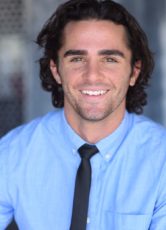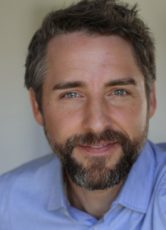
Brad Pitt teased about his potential retirement from acting not so long ago, saying he’s on the “last leg” of his acting career, so let’s look back at the two-time Oscar-winning actor’s journey. Pitt landed his first roles in the daytime soap opera “Another World” and the TV series “Growing Pains,” but his first notable role was in Ridley Scott’s “Thelma & Louise.” This film brought him audience recognition and led to greater opportunities in the films “Moneyball,” “Legends of the Fall,” “A River Runs Through It,” “The Curious Case of Benjamin Button,” “Once Upon a Time… In Hollywood,” and many others. Here are quotes from the A-lister, about the insights he gained over the years while working in the industry:
On preparation
“What I have learned is you can learn anything. Somebody’s going to take a little longer than the others, but we have the ability to learn anything.”
“I need to incubate. I need to sit for a bit and ideas start coming, things start forming, and I find direction, and that’s always the most exciting time to me. By direction I mean a line to follow, and that’s how I equate it with any of the arts—when you find a line, and you start following that line because it means something to you. You don’t know where it’s going, and that’s certainly how I equate it to backing as well as trying to find something in the characters.”
On performing
“The best moments can’t be preconceived. I’ve spent a lot of time in editing rooms, and a scene can be technically perfect, with perfect delivery and facial expression and timing, and you remember all your lines, and [yet] it is dead [in the editing room].”
“So much of making movies is about discovery on the day, what you’re figuring out. If you know everything going in, then it’s not worth doing—it’s already done.”
“My happiest moment is the day they call wrap and I’m free. I’m not looking back.”
Standing out from the competition
“You can’t be different for different’s sake, and this doesn’t always work, but you have to separate yourself from the normal read. Of course, it has to be truthful. If it’s not truthful, don’t waste your time.”
“You want to stake your own claim. You don’t want to be called a copycat.”
Persevering
“Listen, I’ve been pretty fortunate. And if I’ve been underrated, it’s actually been something I’ve been able to work with; I can surprise people. It sets me up to exceed expectations, so I don’t mind.”
“You just have to make sure you get time for yourself, time for your friends, time for your family, and let the next idea percolate. It’s not so difficult to achieve a balance. I’m able to compartmentalize pretty well—the private life and the public life.”
“I try to reinvent, you know, constantly, trying to look for something new, something different and fortunately, I guess [I] was able to survive [my] mistakes along the way and just stay relative.”
Inspiration and early career
“I grew up in Oklahoma and Missouri, and I just loved film. My folks would take us to the drive-in on summer nights, and we’d sit on the hood of the car … I just had this profound love for storytelling, this medium that shows us other cultures, places I’d yet traveled and places I wanted to go. Or said something better than I could say it. Or help me understand something … There’s this storytelling that reminds us we’re all the same.”
“When I first moved [to Los Angeles], I did not know a thing. In fact, if you’re ever feeling bad about yourself, go see some of my early stuff because I did not know a thing.”
“When I first moved to LA, I discovered Roy London. I didn’t know anything about the arts, the profession. I had no technique, I knew nothing, I’m fresh from Missouri. I sat in on a few classes, and they just felt a little guru-ish and just didn’t feel right to me—until I met Roy.”
“Seeing the world is the best education you can get. You see sorrow, and you also see great spirit and will to survive.”
Career advice
“When I first started, they were trying to get me into sitcoms—I think because I had that kind of Wonder Bread look, and my hair always went into place. I kept saying, ‘I’m not good at sitcoms. I don’t know how to do that.’”
“I tell all the young guys, don’t make choices because somebody else is telling you it’s good from a career-maintenance perspective.”
“When you first get opportunities, suddenly you get surrounded by a lot of people who want to make money off you but also are there to help. But they start telling you so much what you need to be and what you need to do to maintain some idea of career maintenance. When you start out, it’s very discombobulating and you are ill-defined at that point as far direction, what stories are personal to you … At that point, I wish I knew more just to follow what was interesting to me because we’re actors. We want to tell stories, we want to tell personal stories and not just something they would plug anyone of us in and basically get the same thing. Get into something that’s really personal, it means something to you—something that you have something to say, something that’s really individualized. And I wish I was more aware of that then instead of doing a few things that I was told would be good for me. And they weren’t because it left me empty, so I didn’t do a good job anyways. And I think that’s the key to what we do.”
Working with directors
“I would say that the directors that I’ve liked the most are all curious in nature—curious thinkers. They’re all big questioners, I would say, first and foremost.”
“I’ve worked with some really great directors, and I’m really choosy about them because they’re telling the story at the end of the day.”




